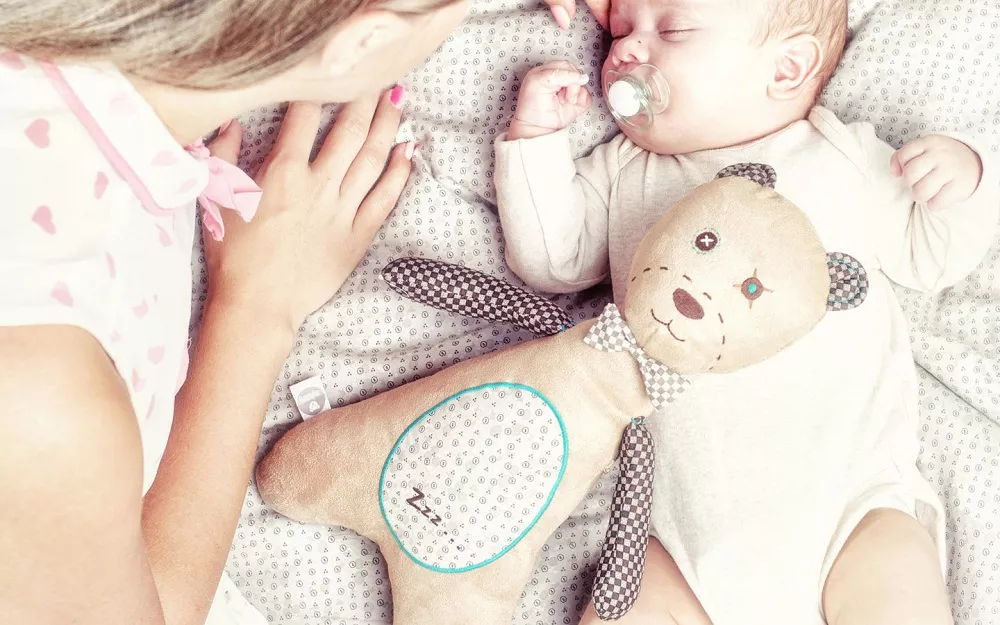Top Tips for Getting Your Baby to Sleep
Blog
8
Top Tips for Getting Your Baby to Sleep
As any parent knows, sleep can be somewhat of a mystery when it comes to babies. In fact, according to research from Ergoflex on the sleeping habits of people across the UK, parents are getting just 5.1 hours of sleep per night in the first year of their child’s life.
Every parent, new or veteran, would benefit from a healthier relationship with sleep. In most homes across the UK, it starts with getting baby to rest well, so that the adults can too. Here are our top tips for getting baby to sleep:
- Nap time limits – Rather than limiting the number of naps a baby takes in the day, sleep-stolen parents should try limiting the time you allow your
baby to nap. Whilst it may be difficult to wake a sleeping baby, sleeping for too long in the day can have an effect on the amount of night-time sleep a baby gets. Newborns will naturally sweep in and out of naps during the day, but older babies and toddlers only need around 3 hours maximum of sleep each day. - Lay baby down awake – Teaching baby to fall asleep independently will encourage good sleeping habits in the long run. Just like adults, babies wake up naturally throughout the night. If they don’t know how to get back to sleep themselves, babies will cry out after waking in order to seek help in falling asleep again. As a baby gets older, their experience in falling asleep independently will come into play as they are able to drift back off to the land of nod without any assistance from a parent.
- Get into a strict routine – Babies (and most adults!) thrive on routine, structure and predictability. Nap time and bed time should have their own individual routines. For nap time, myHummy suggest trying the following: take baby to their room, close the blinds and curtains, place baby in their sleep sack/wearable blanket, turn on a white noise toy (such as the myHummy Snoozy), have a quick cuddle and say your sleep phrase (i.e. sleep tight, I love you). For bed time, your routine will be an extended version of the nap time routine, and may include a relaxing bath, a baby massage, reading a story, offering a bottle etc. Note that babies should not be sleeping in their own room overnight until they are six months old.
- Dreamfeeding – Dreamfeeding is when you pick up your sleeping baby, and feeding themwhilst they are still in a deeply relaxed, drowsy state. Essentially, dreamfeeding is pre-empting a feed, meaning that the likelihood of waking for another feed just after parents have dozed off is minimised. There are plenty of online sources about dreamfeeding if you are curious about how to extend the life of the last feed before bed.
- White noise is a sleep-saviour – at myHummy we are specialists in white noise – parents around the world swear by our miraculous teddy bears, but why do babies love white noise so much? For nine months, babies are surrounded by a plethora of sounds: mum’s heartbeat, her rumbling tummy, and the muffled noise of the outside world, so they feel more at ease when provided with the right amount of background noise when sleeping. White noise also cancels out other sounds, like sudden increases in background noise; such as a slammed door or a beeping car. So, whilst baby has fallen asleep with the assistance of their white noise toy, you can begin your evening routine of winding down yourself. If the baby does stir, myHummy contains a sensor that turns the white noise within the toy back on, which will help baby to fall back to sleep independently and without a fuss. In the newest version of myHummy, you can even control the volume and other white noise settings through your phone.
We hope that, with our 5 top tips for helping babies sleep, you’ll will be able to snatch some of your sleeping hours back, and give your baby a head start in developing healthy sleeping patterns.
